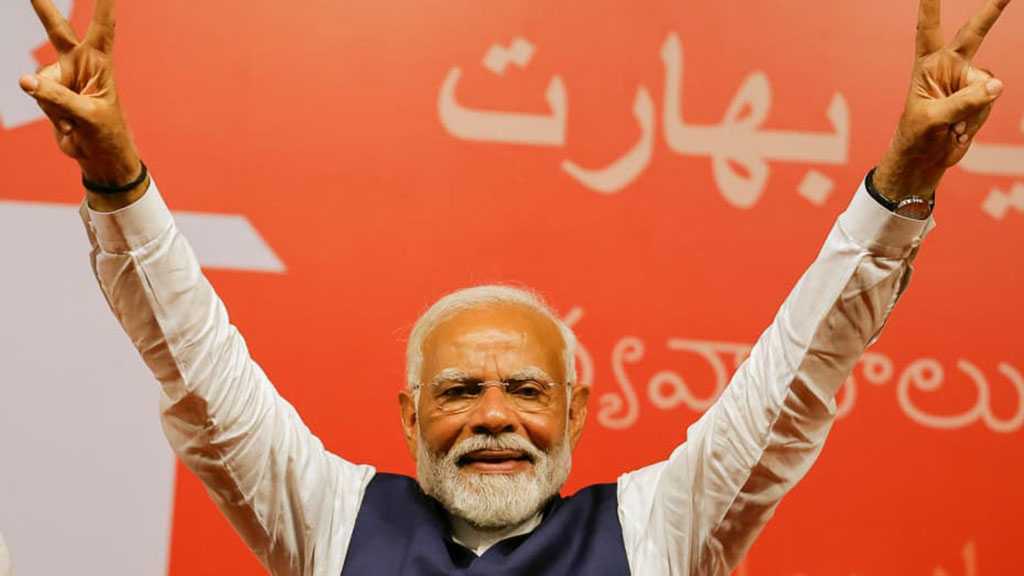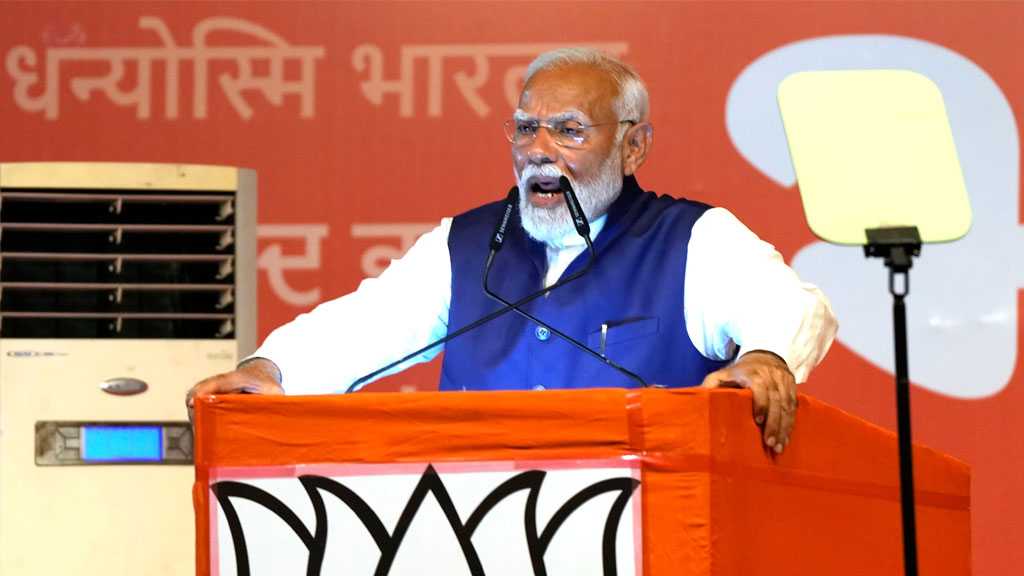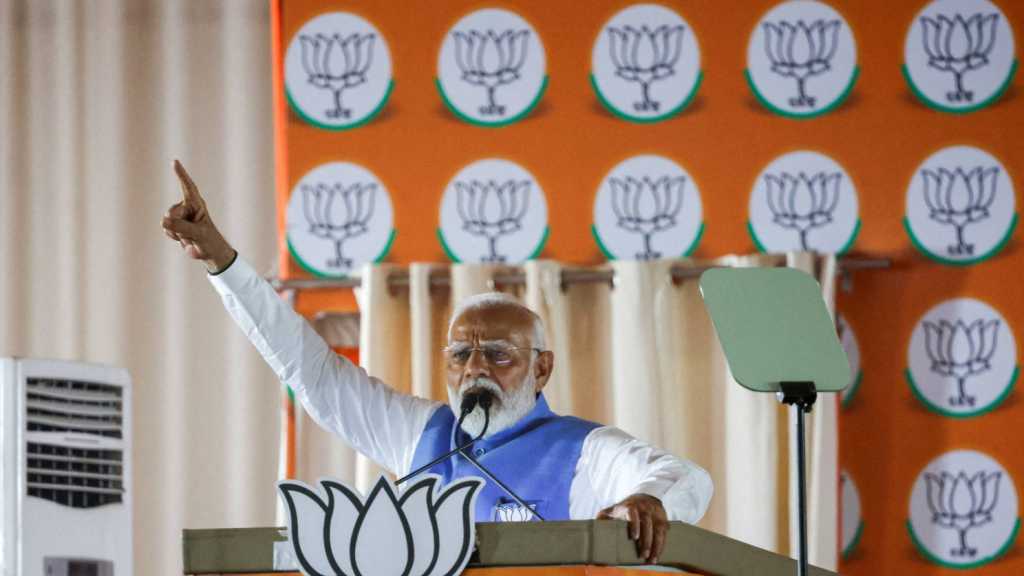Modi’s Coalition Formally Chooses Him as Indian Prime Minister for Third Term

By Staff, Agencies
India’s Narendra Modi has been elected formally by members of his National Democratic Alliance [NDA] to serve as prime minister for a rare and remarkable third consecutive term.
Lawmakers from the alliance of 15 parties led by Modi’s Bharatiya Janata Party [BJP], which won 293 seats in the 543-member Lok Sabha [the lower house of parliament], voted unanimously for Modi to lead the coalition.
“It is my good fortune that all of you from NDA have chosen me to lead,” Modi said. “We have won the majority… but to run the country it is unanimity that is crucial…we will strive for unanimity.”
Modi later announced that he had received an invitation from President Droupadi Murmu to establish a government.
“I want to assure the people of the country that in the 18th Lok Sabha also…we will work with the same pace, same commitment to fulfill aspirations of the people,” he told reporters outside the president’s palace.
The NDA, comprising majorly of the BJP, the Telugu Desam Party [TDP], the Janata Dal [United] [JDU], the Lok Janashakti Party [LJP], the Shiv Sena, the Rashtra Lok Dal [RLD], and the Janata Dal [Secular] [JDS], praised Modi and expressed confidence in his leadership.
“I am confident that whatever is left he will now complete it. We will be with him at every step,” said Nitish Kumar, the chief minister of the eastern state of Bihar whose JDU party is the third largest in the NDA with 12 lawmakers.
Despite the win, the BJP fell short of the 272 seats required for independent governance.
Modi's party is shadowed by opposition Indian National Developmental Inclusive Alliance [INDIA] led by the country’s oldest party, the Indian National Congress, which secured 232 seats.
Coalition members have vowed to make changes in the policies that the BJP brought in during its last tenure.
Observers and political analysts view the election results as the beginning of the downfall of Modi and the BJP.
Modi's supporters credit him for transforming the country into an emerging global power since sweeping to power in 2014.
His critics accuse him of eroding human rights, cracking down on freedom of the press and stoking hatred toward religious minorities.
During the election campaign, Modi was accused of hate speech and peddling anti-Muslim tropes after describing Muslims as “infiltrators”.
“The results have shown that India has rejected this rhetoric from Modi and his people,” said Hasan Salim Patel, a communications consultant and former planning editor at Al Jazeera.
Comments
- Related News
![Commemorating Imam Hussein’s [AS] Martyrdom: Solidarity and Reflection in Yari Road, Mumbai](https://english.alahednews.com.lb/uploaded2/images/20240718224512.jpg)


